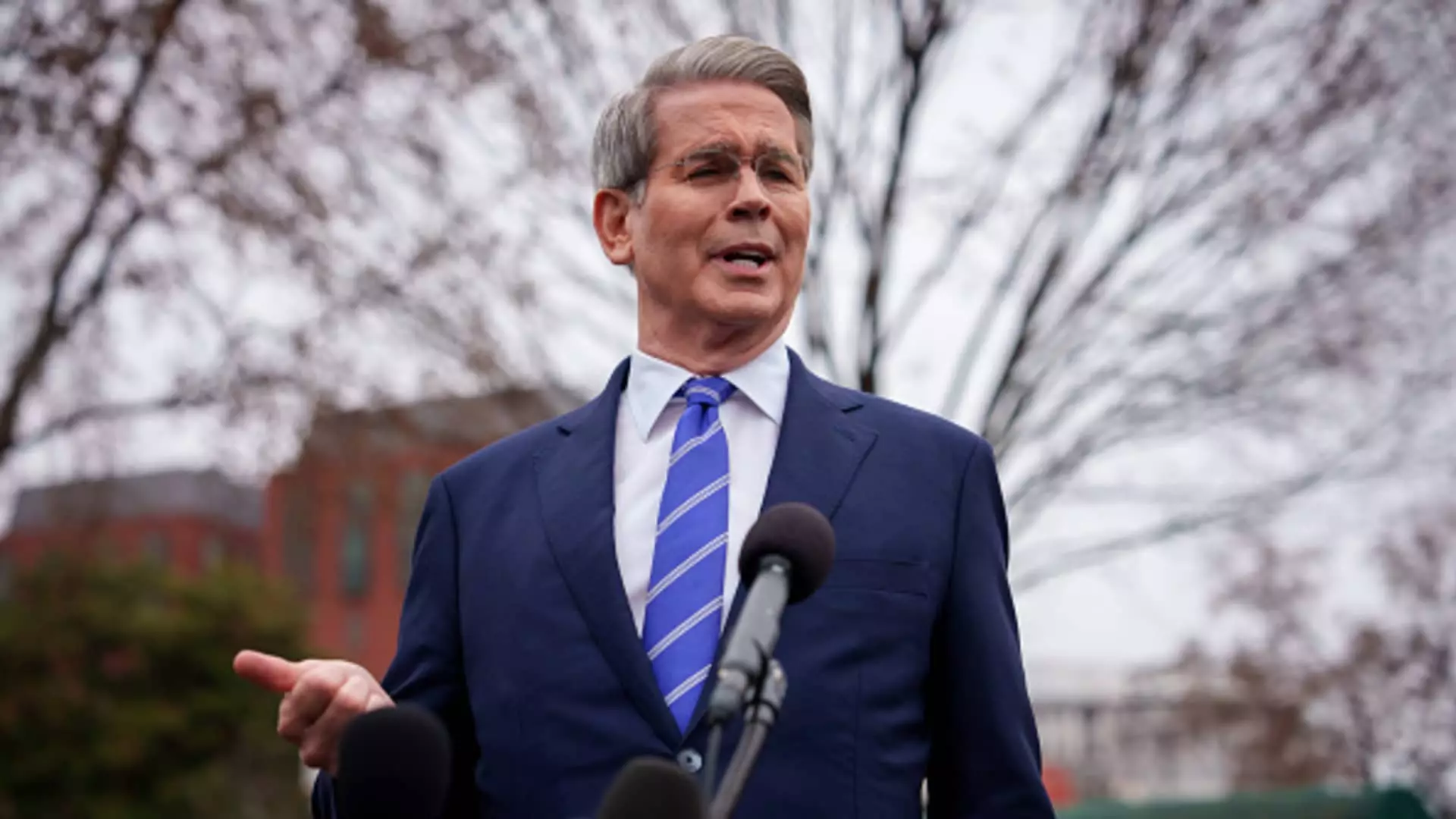The recent sell-off in the stock market may appear to be a headline-grabbing event, but a deeper examination reveals a stark reality: the upheaval largely stems from the vulnerabilities within the technology sector rather than external political ramifications. Treasury Secretary Scott Bessent astutely identified a significant turning point, specifically noting that the stock market took a hit after the emergence of the Chinese AI startup, DeepSeek. This isn’t merely about tariffs or national policies but indicates a growing concern regarding the competitive edge of U.S. tech giants. The so-called “Magnificent 7” — industry titans like Apple, Amazon, and Microsoft — are facing unprecedented pressure as new, innovative players enter the fray, sending shockwaves through an overly complacent market.
Divide between Reality and Rhetoric
Bessent’s insistence that Trump’s protectionist policies are not the main cause of the market turmoil may be an oversimplification. Indeed, while tariffs enforce challenging economic terrains, the tech sector’s downfall exemplifies a critical disconnect between Wall Street’s optimism and the realities of fierce global competition. Investors now appear caught in a whirlwind of insecurity, fueled by alarming news that China could provide cheaper AI solutions. The broader implications are clear: a once-dominant U.S. tech industry must brace for a transformative epoch marked by rapid technological advancement and increased competition.
Trump’s Tariffs: A Political Disruption in Economic Fabric
Although Bessent downplays the impact of tariffs in the stock market plunge, it would be remiss to overlook how such policies play into the larger economic narrative. Trump’s aggressive “reciprocal tariff” policy not only stunned investors but catalyzed fears surrounding economic stagnation and inflation. With the S&P 500 flirting with correction territory, it becomes evident that even if the tech sell-off may be internally motivated, the political landscape doesn’t exist in a vacuum. The turbulence stemming from the summit of tariffs serves as a painful reminder of how unexpected government actions can quickly alter market sentiment — a crucial factor that investors monitor closely.
The Deteriorating Investor Sentiment
Every day, investors place their faith in the stability of the stock market and the companies within it. However, when dominant entities falter amid newfound competition, anxieties skyrocket, driving stock prices down and resulting in the sell-off we are witnessing today. The threefold assault of rising competition, tariffs, and a volatile geopolitical atmosphere creates a shaky environment for economic development. As the market reacts, the fallout amplifies. The cascade of diminished confidence in even well-established companies in the tech sector raises a crucial question: do we fully understand the magnitude of the changes taking place in global tech dynamics?
The recent downturn in the stock market serves as both a microcosm and a macrocosm of the prevailing uncertainties that pervade our economic climate. While it is easy to fixate on immediate causes such as tariffs or external announcements, the broader implications of emerging technologies and shifting competitive landscapes cannot be ignored as we reflect on the aspects propelling and pulling down our market stability.

